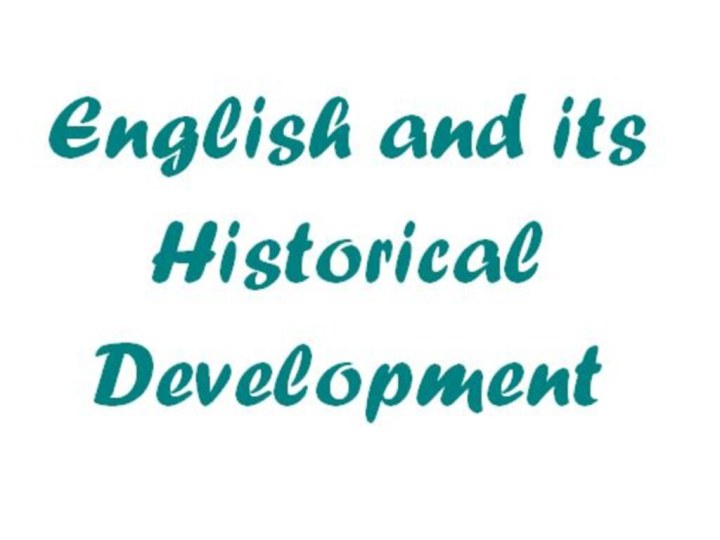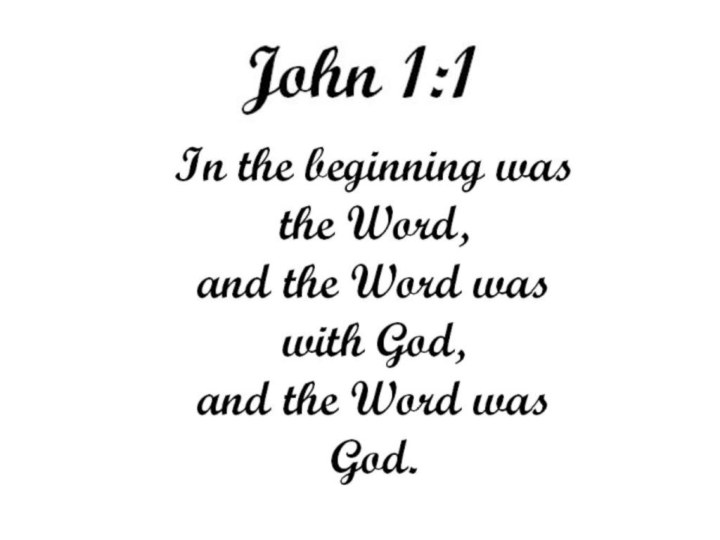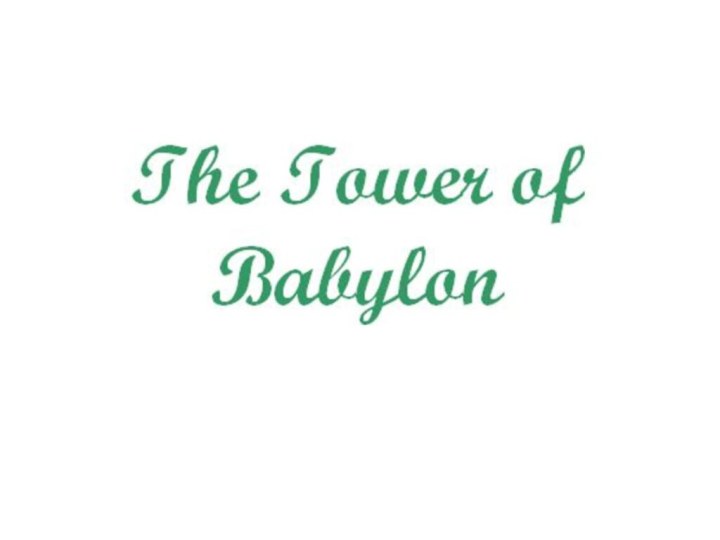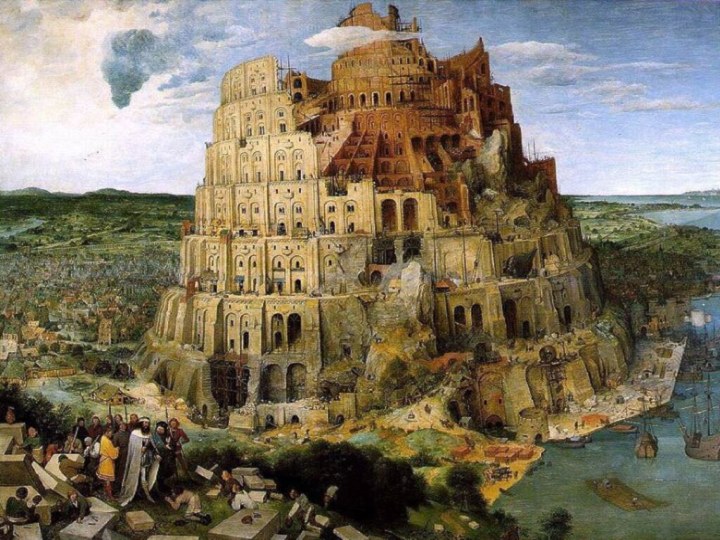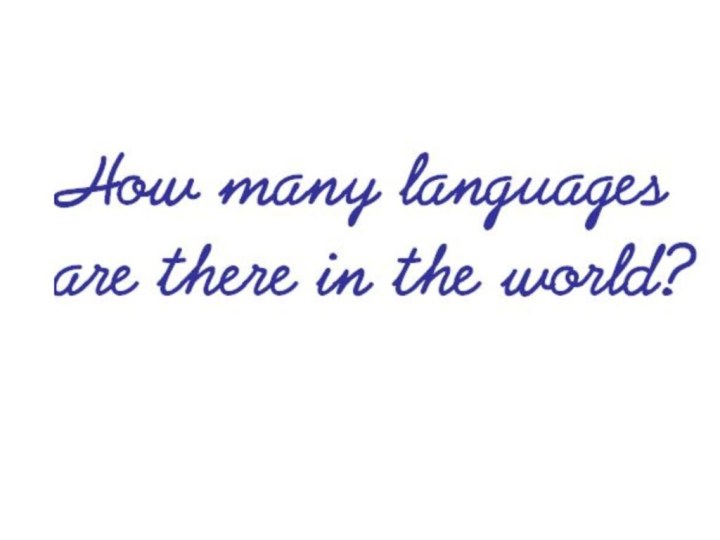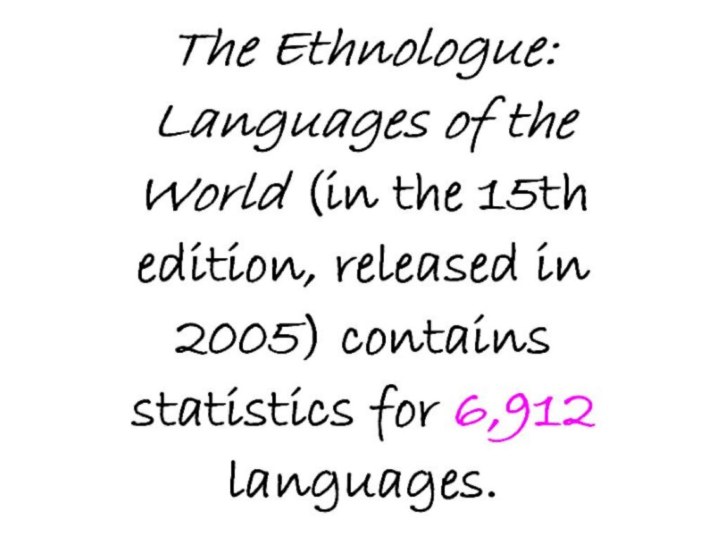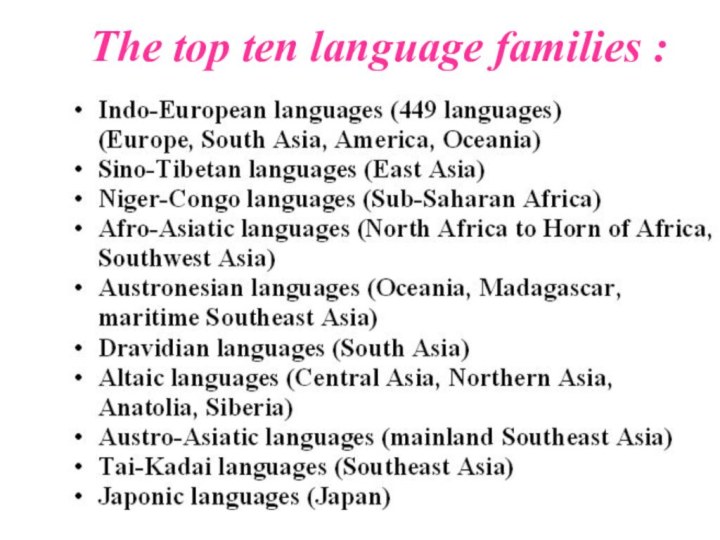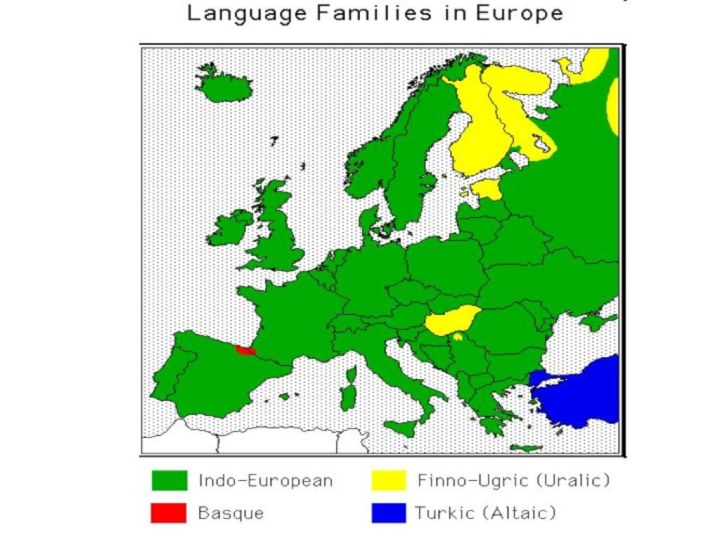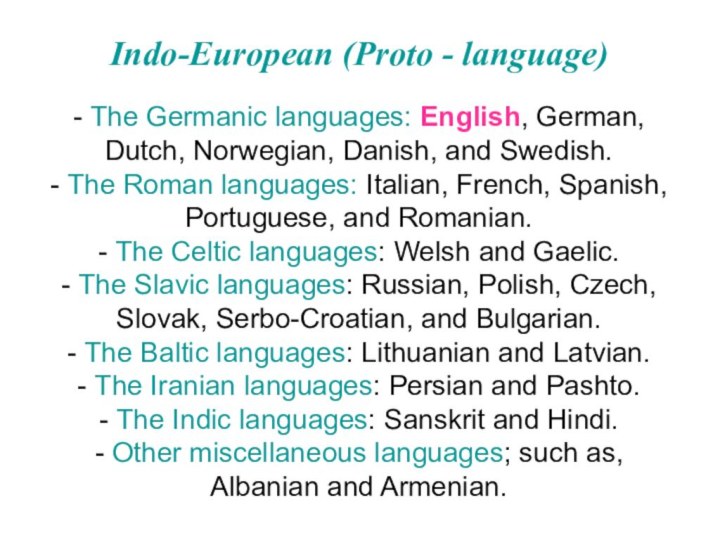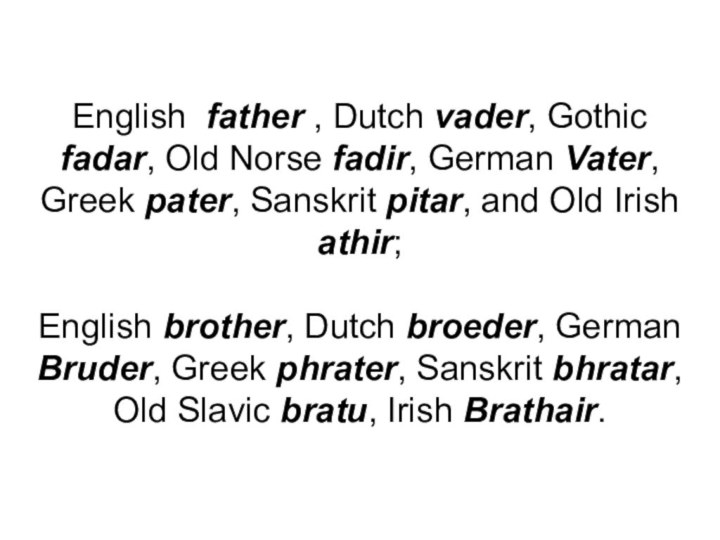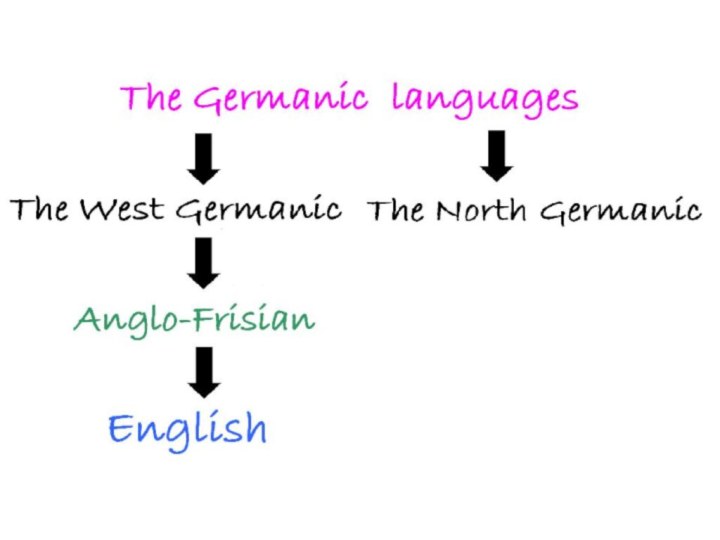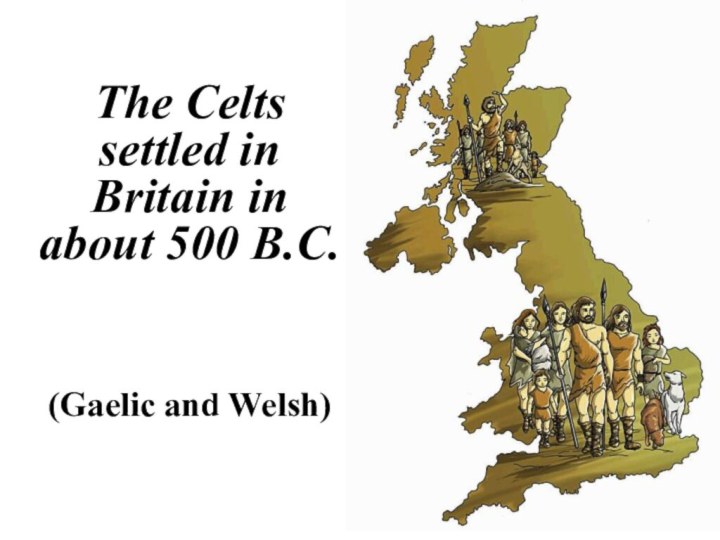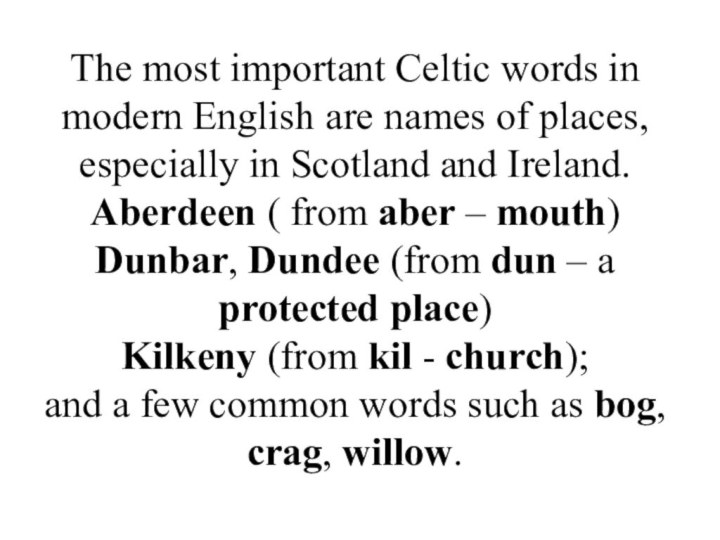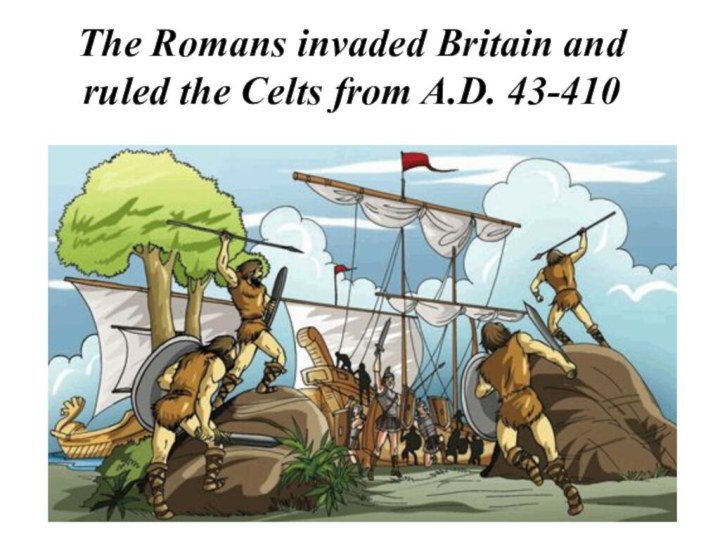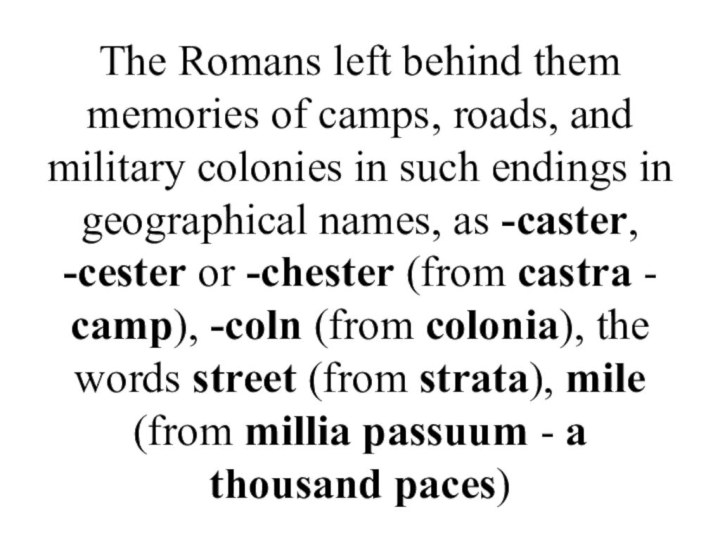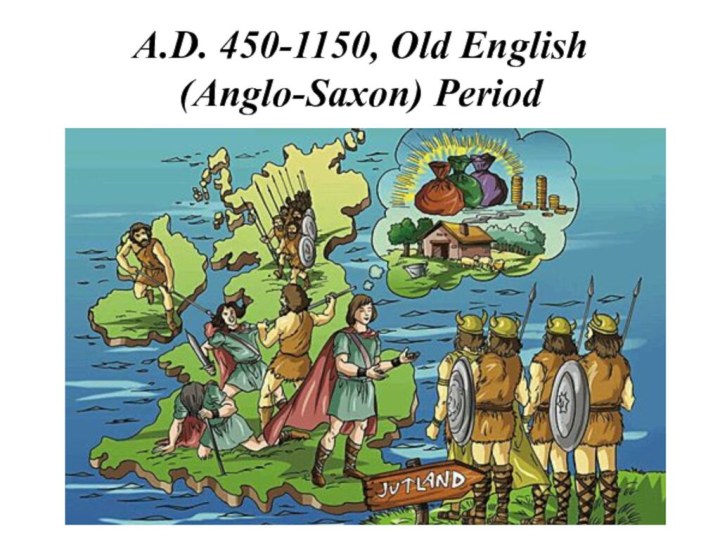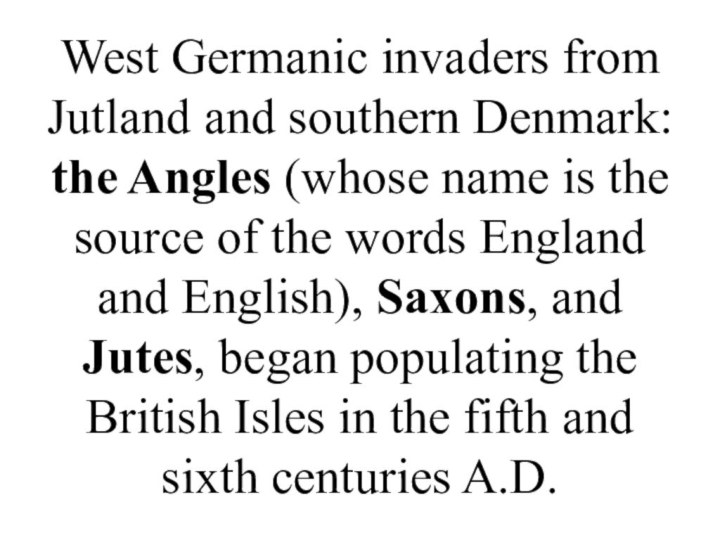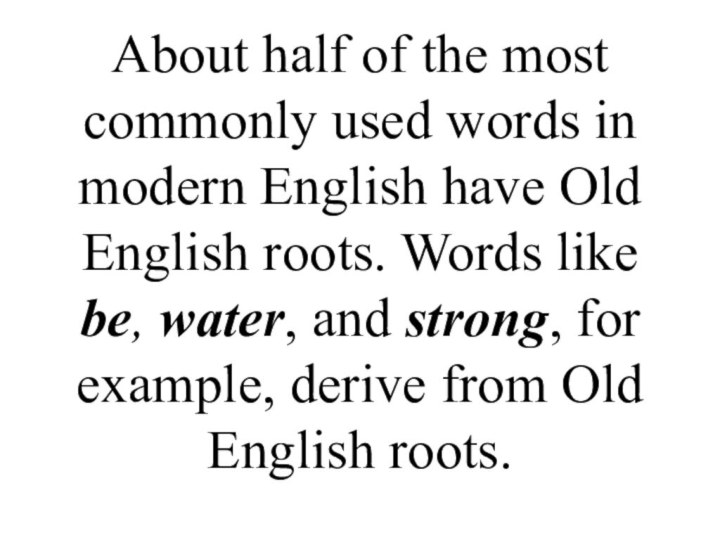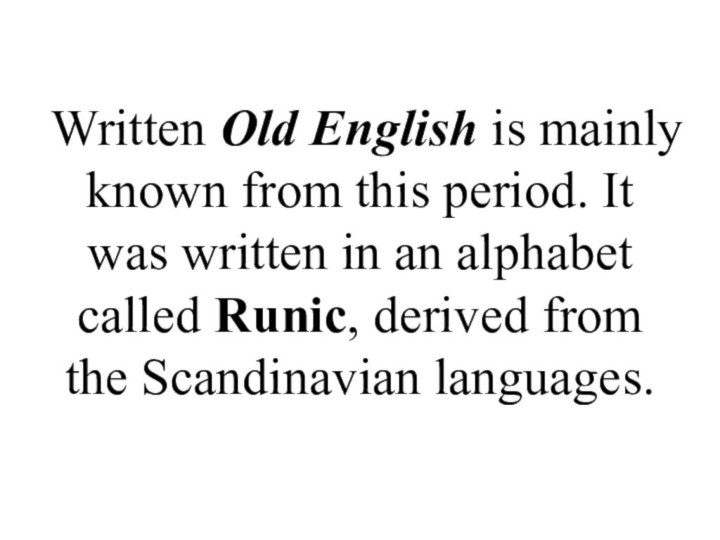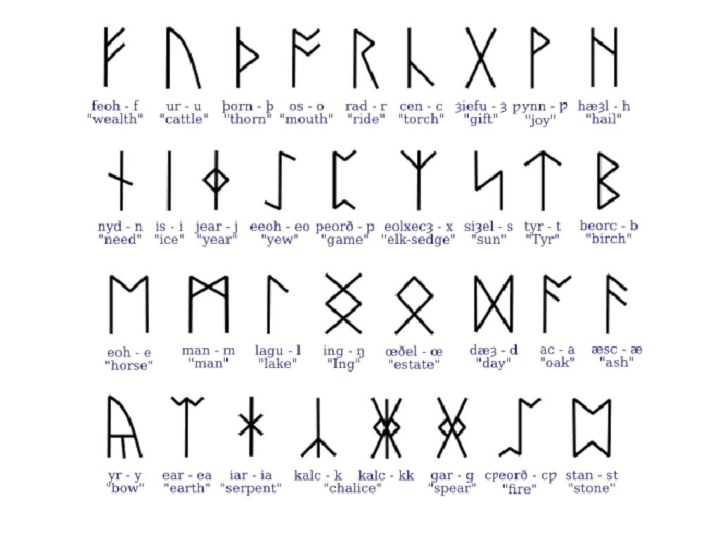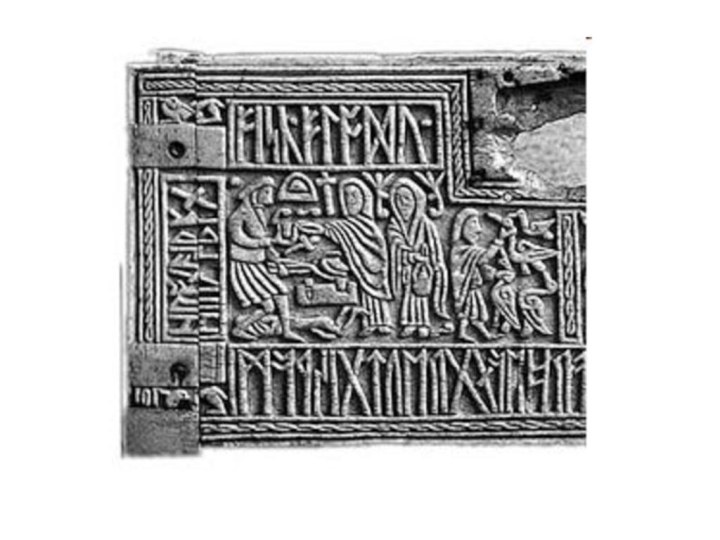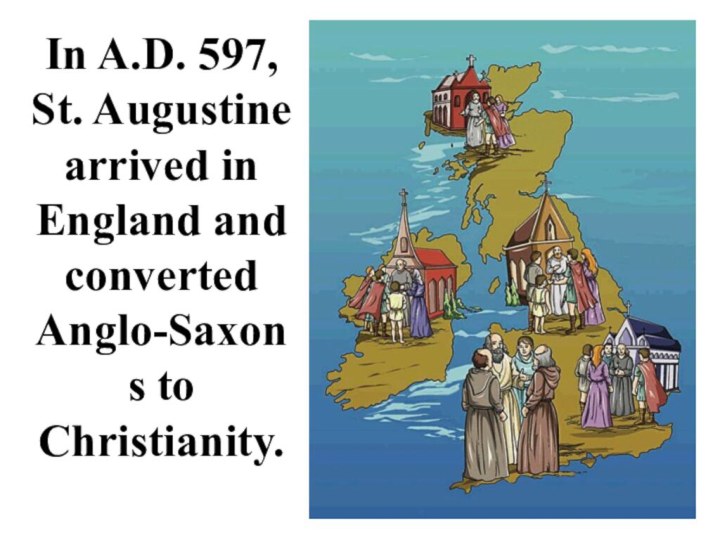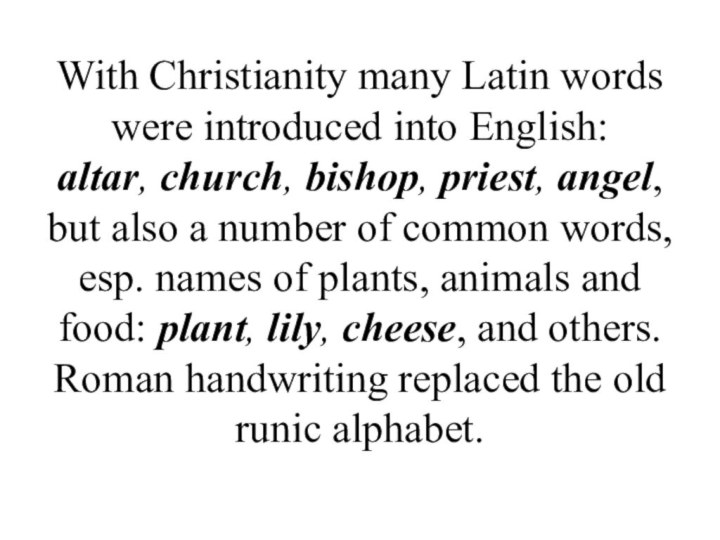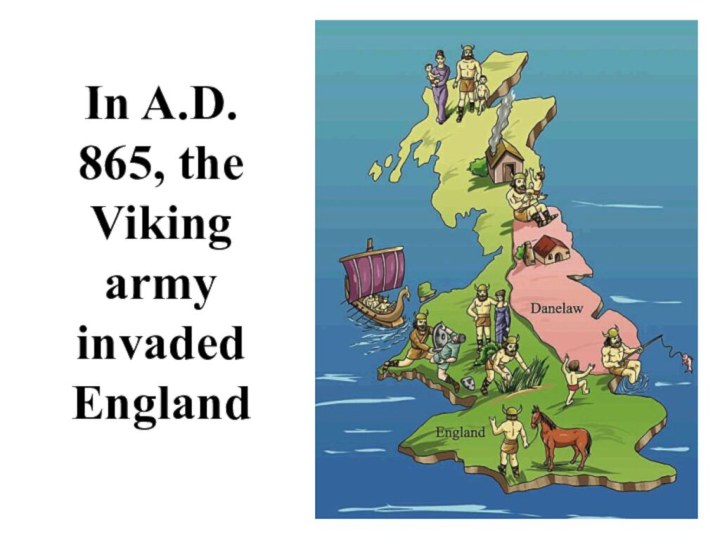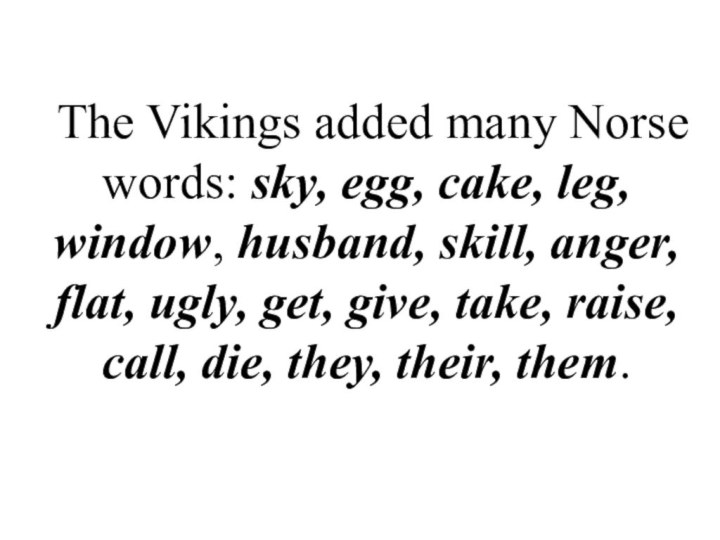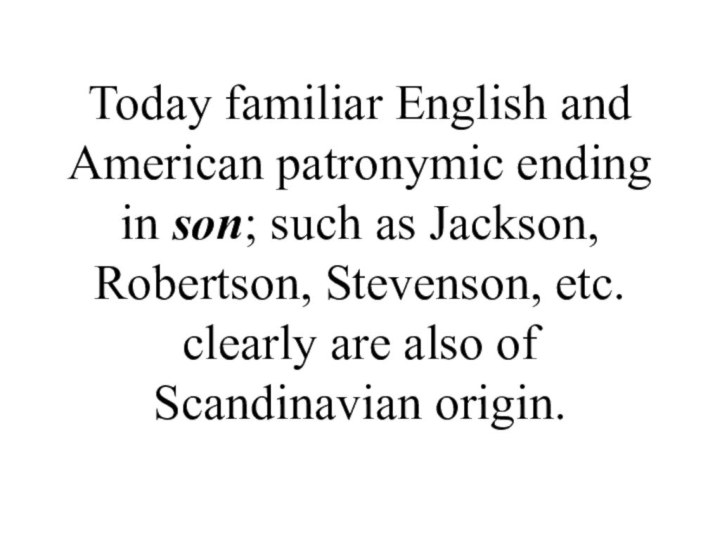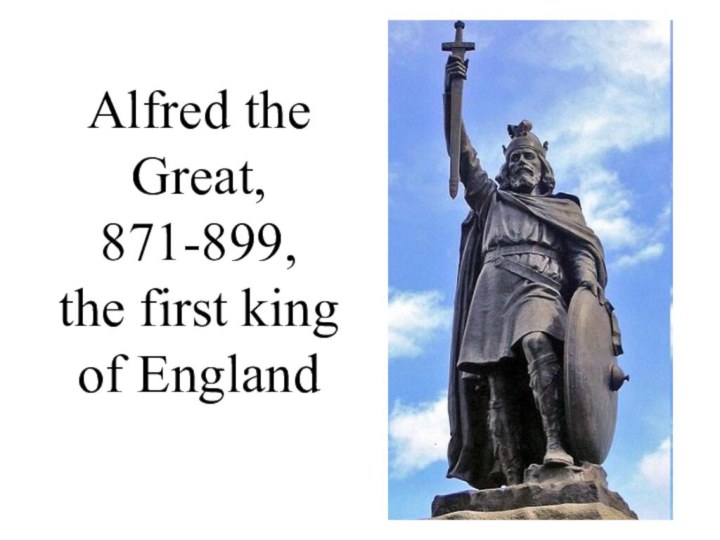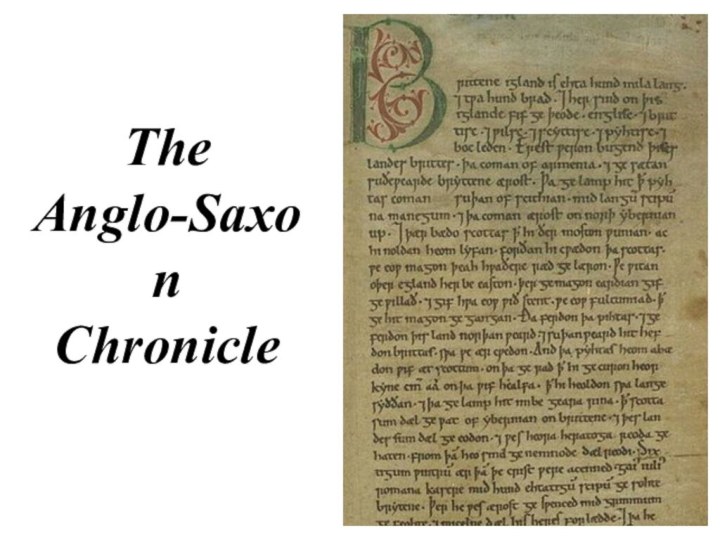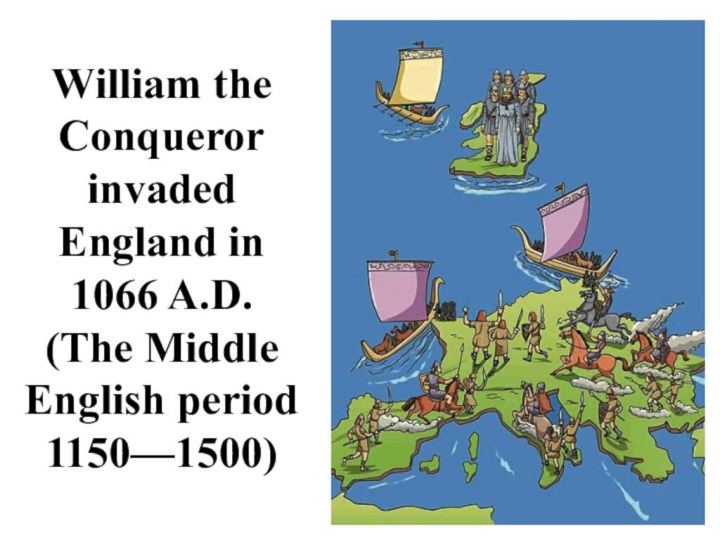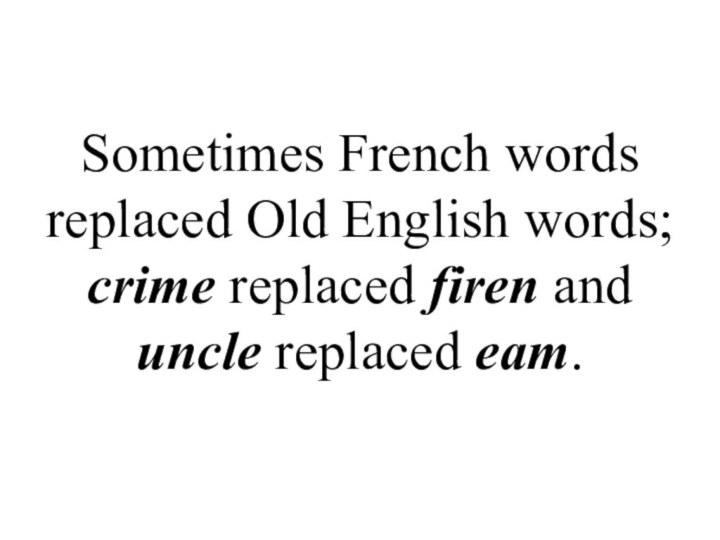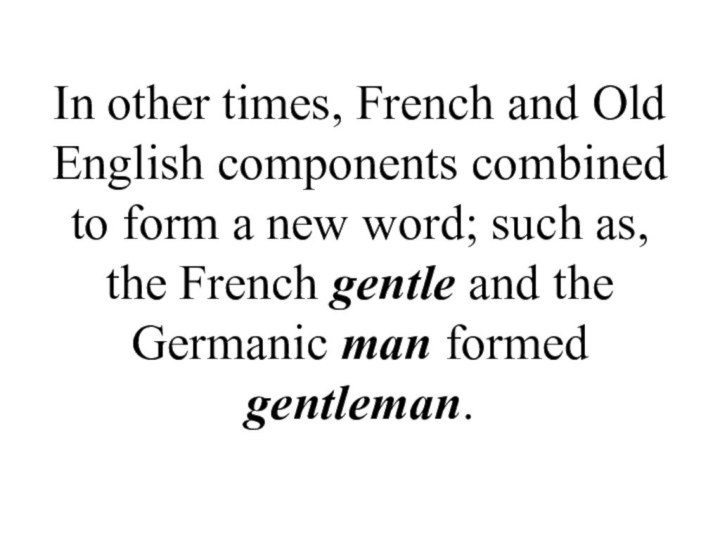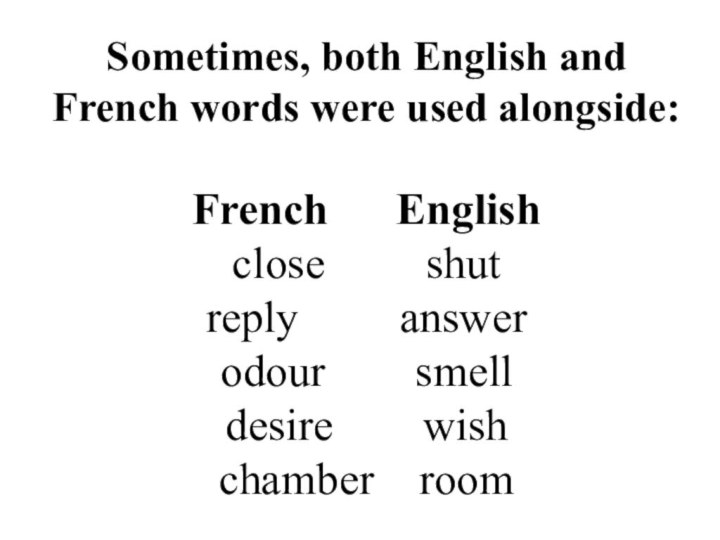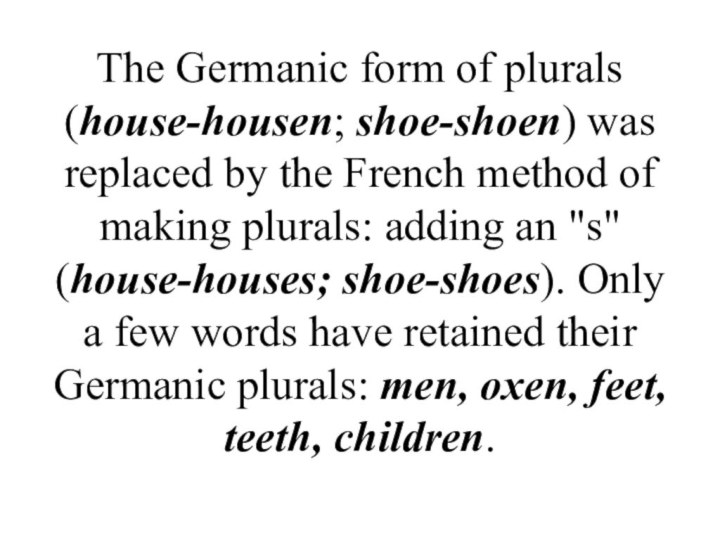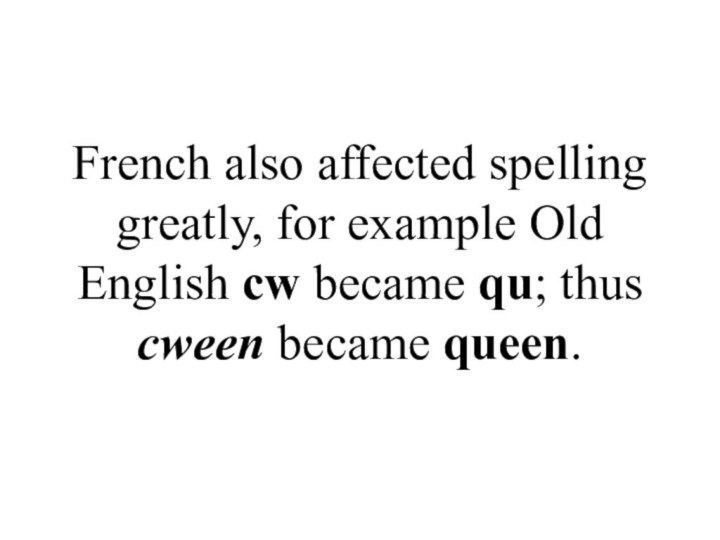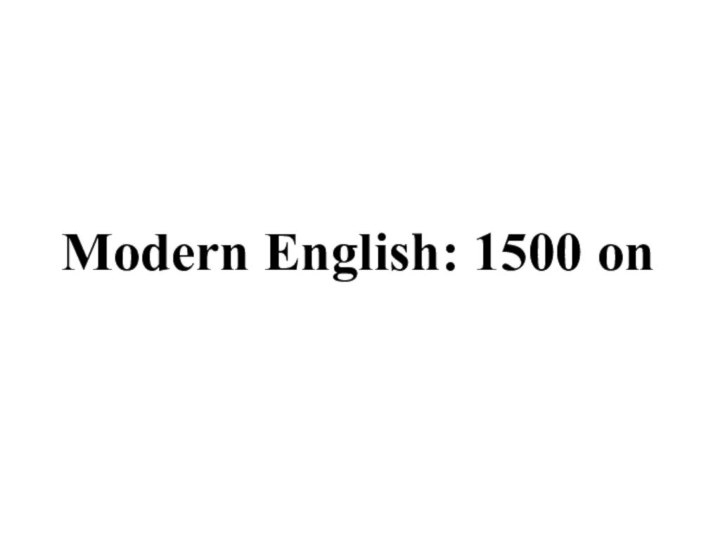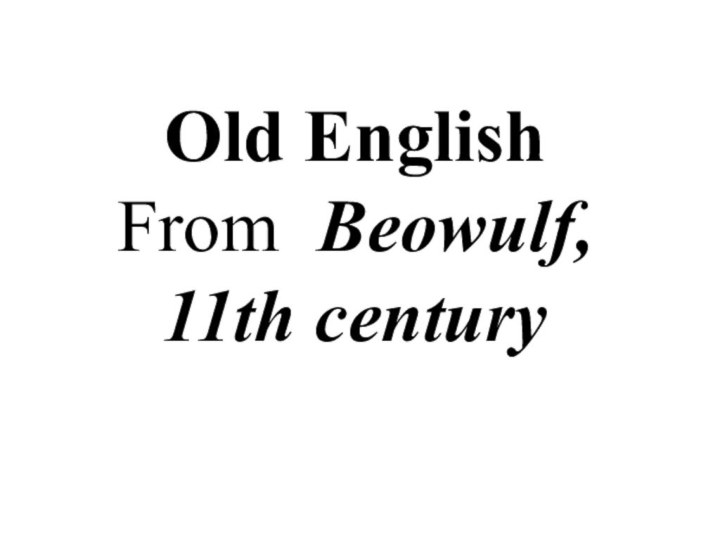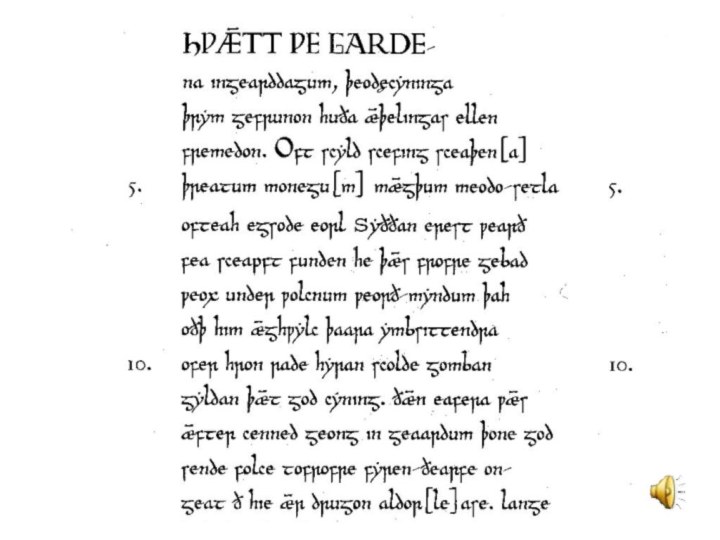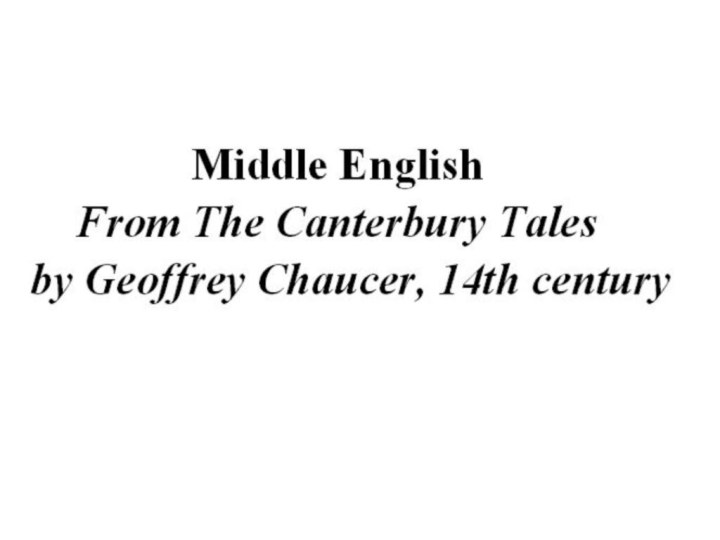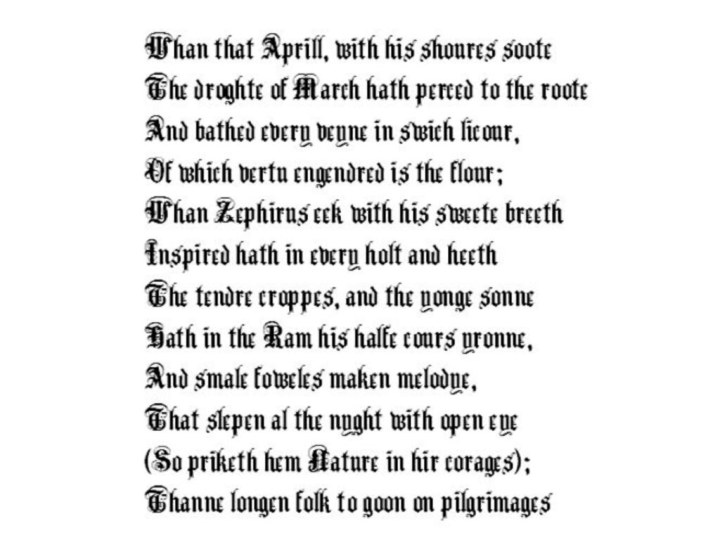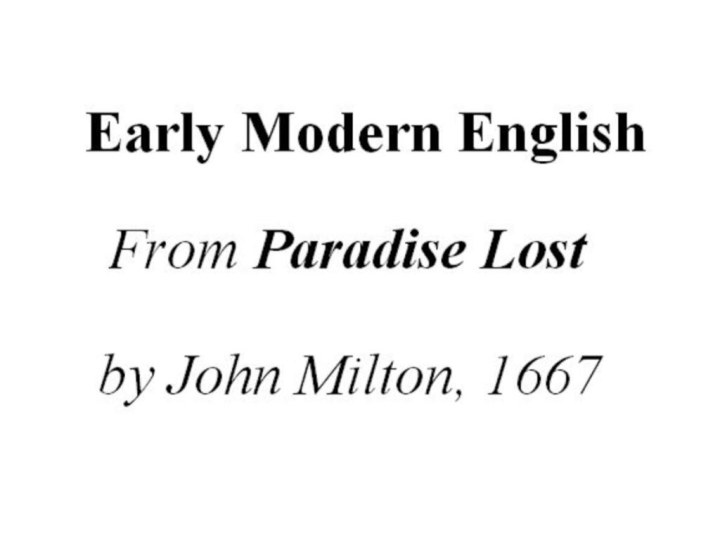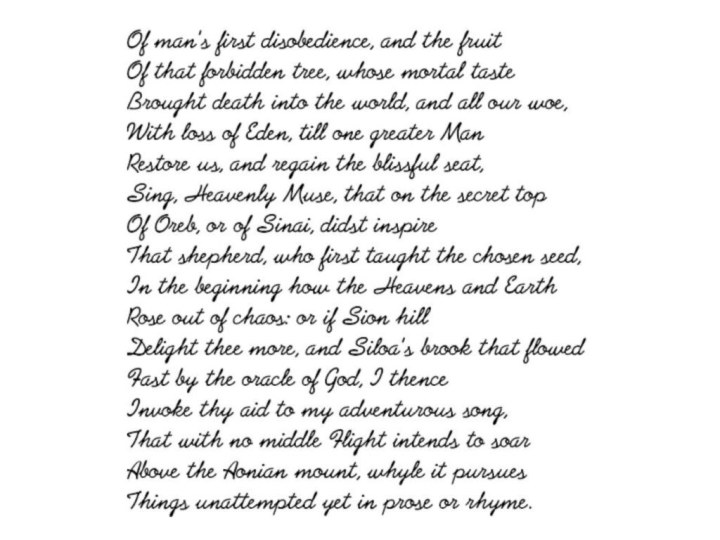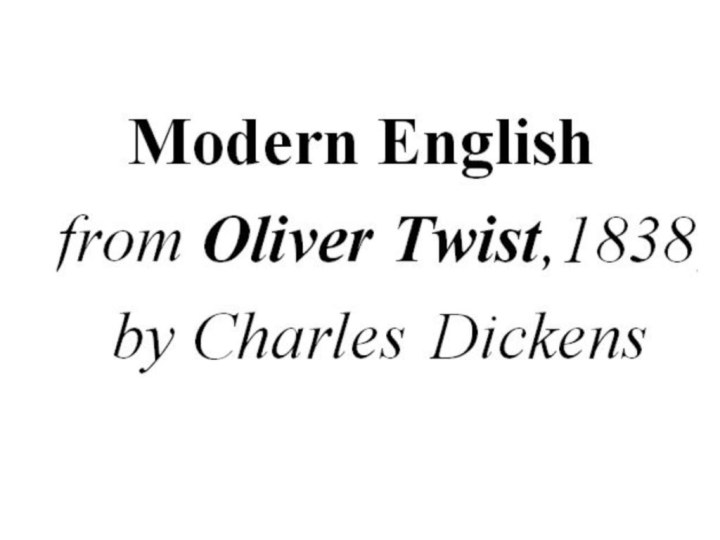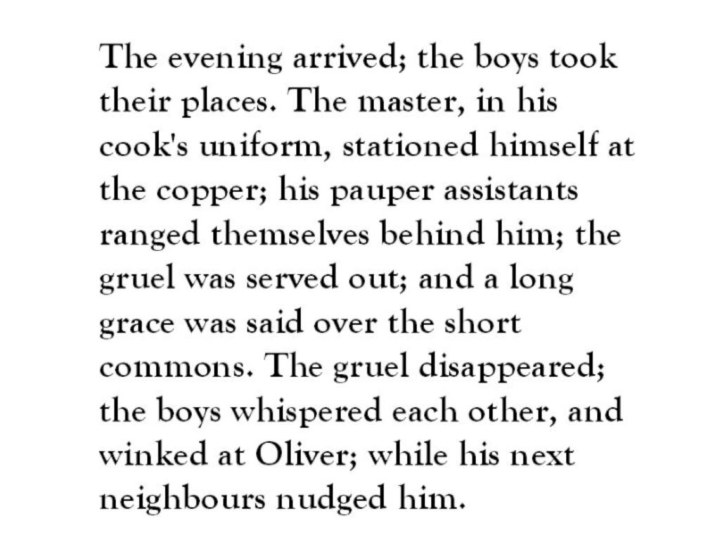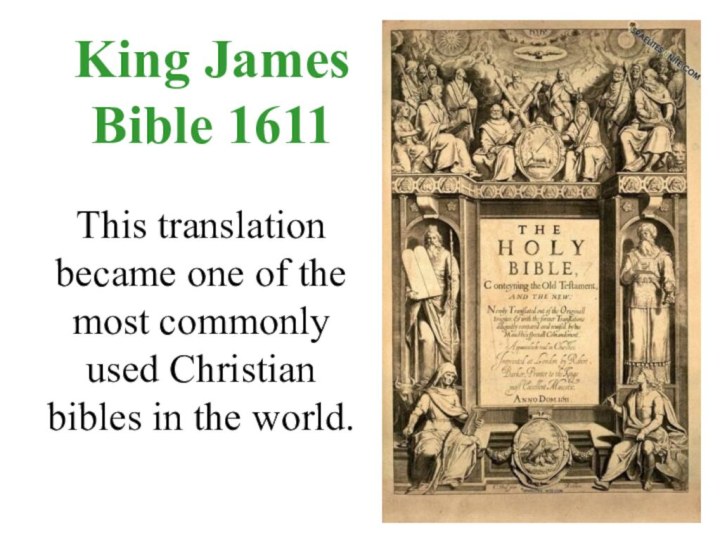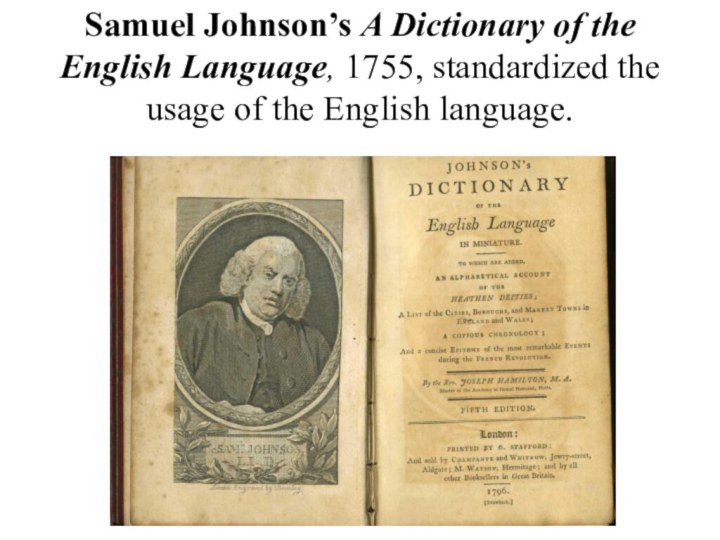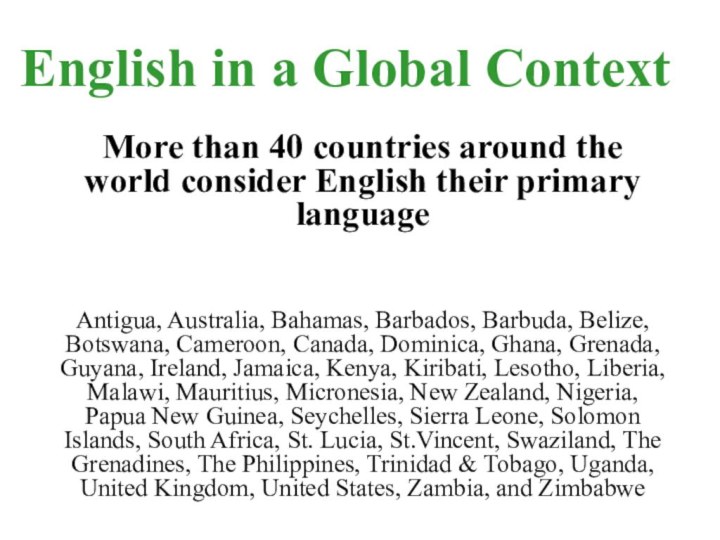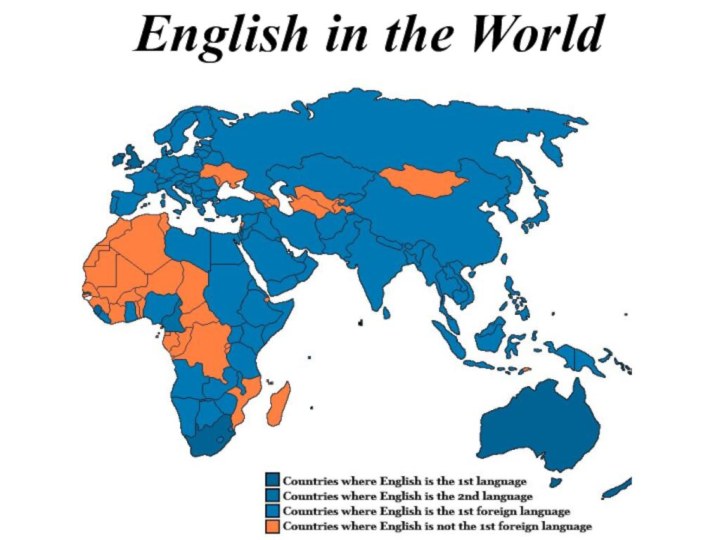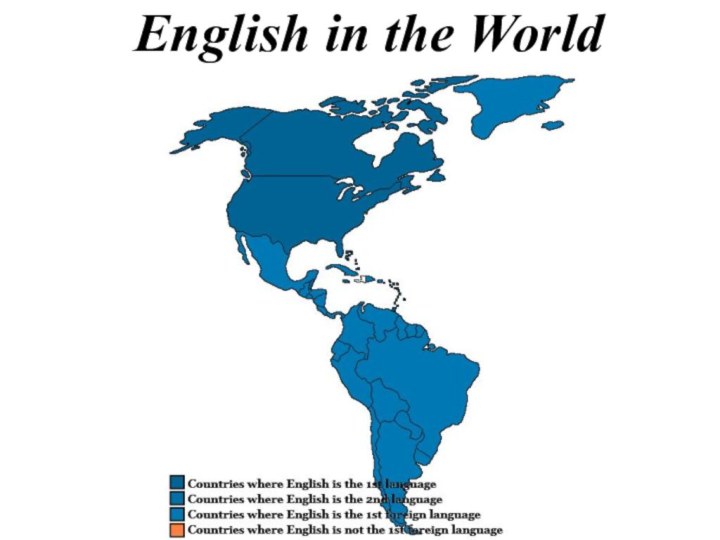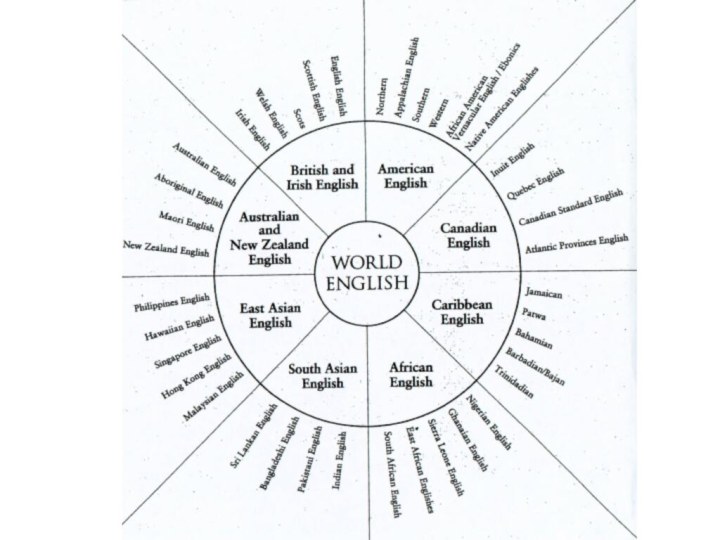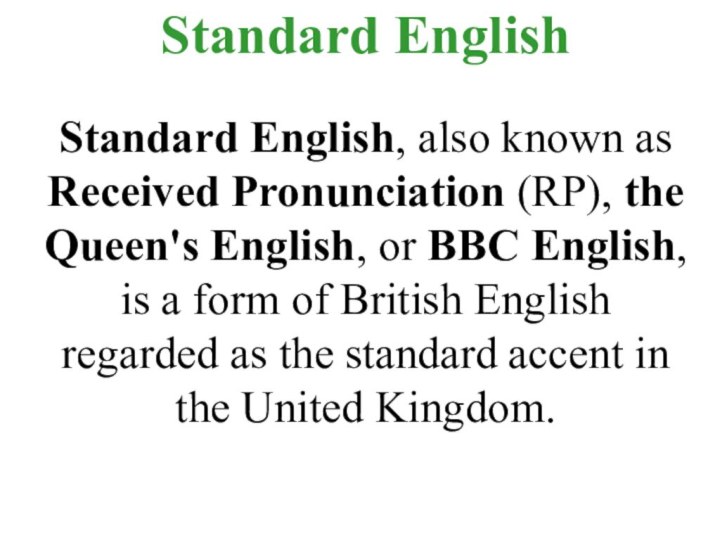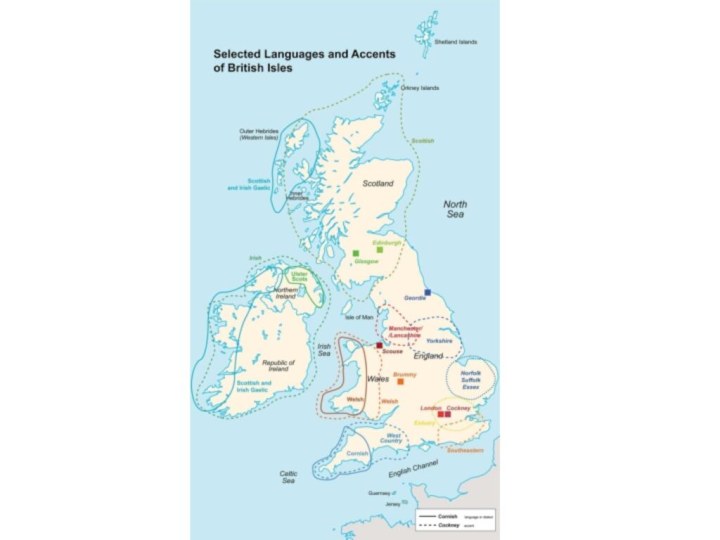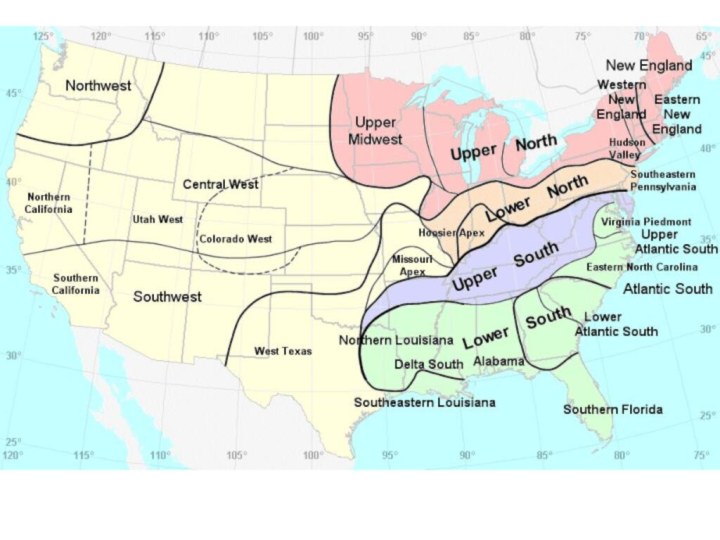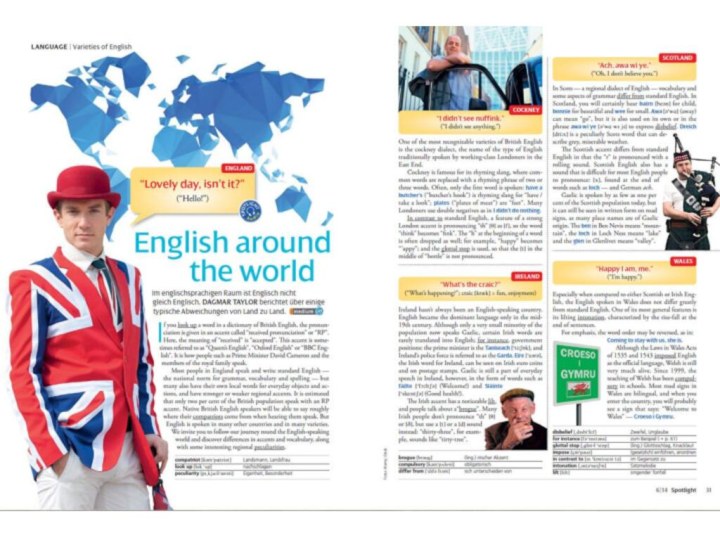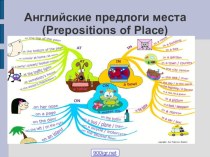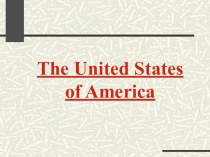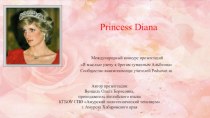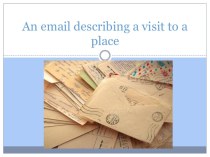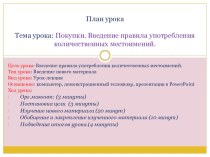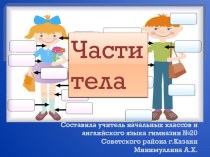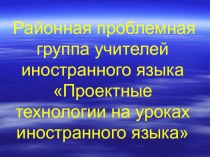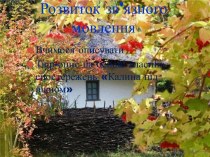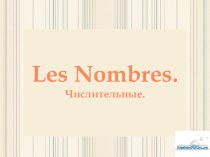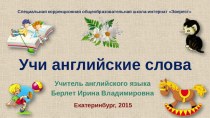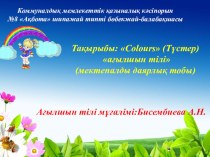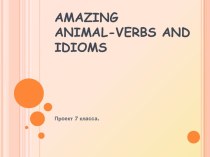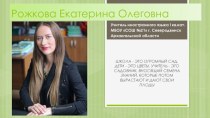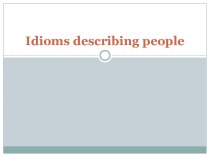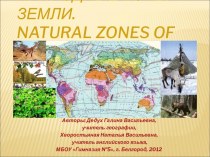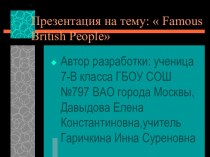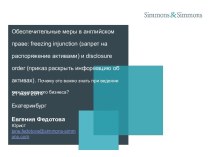Слайд 7
The top ten language families :
Слайд 9
Indo-European (Proto - language)
- The Germanic languages: English,
German, Dutch, Norwegian, Danish, and Swedish.
- The Roman
languages: Italian, French, Spanish, Portuguese, and Romanian.
- The Celtic languages: Welsh and Gaelic.
- The Slavic languages: Russian, Polish, Czech, Slovak, Serbo-Croatian, and Bulgarian.
- The Baltic languages: Lithuanian and Latvian.
- The Iranian languages: Persian and Pashto.
- The Indic languages: Sanskrit and Hindi.
- Other miscellaneous languages; such as, Albanian and Armenian.
Слайд 10
English father , Dutch vader, Gothic fadar, Old
Norse fadir, German Vater, Greek pater, Sanskrit pitar, and
Old Irish athir;
English brother, Dutch broeder, German Bruder, Greek phrater, Sanskrit bhratar, Old Slavic bratu, Irish Brathair.
Слайд 12
The Celts settled in Britain in about 500
B.C.
(Gaelic and Welsh)
Слайд 13
The most important Celtic words in modern English
are names of places, especially in Scotland and Ireland.
Aberdeen
( from aber – mouth)
Dunbar, Dundee (from dun – a protected place)
Kilkeny (from kil - church);
and a few common words such as bog, crag, willow.
Слайд 14
The Romans invaded Britain and ruled the Celts
from A.D. 43-410
Слайд 15
The Romans left behind them memories of camps,
roads, and military colonies in such endings in geographical
names, as -caster,
-cester or -chester (from castra - camp), -coln (from colonia), the words street (from strata), mile (from millia passuum - a thousand paces)
Слайд 16
A.D. 450-1150, Old English (Anglo-Saxon) Period
Слайд 17
West Germanic invaders from Jutland and southern Denmark:
the Angles (whose name is the source of the
words England and English), Saxons, and Jutes, began populating the British Isles in the fifth and sixth centuries A.D.
Слайд 18
About half of the most commonly used words
in modern English have Old English roots. Words like
be, water, and strong, for example, derive from Old English roots.
Слайд 19
Written Old English is mainly known from this
period. It was written in an alphabet called Runic,
derived from the Scandinavian languages.
Слайд 22
In A.D. 597, St. Augustine arrived in England
and converted Anglo-Saxons to Christianity.
Слайд 23
With Christianity many Latin words were introduced into
English:
altar, church, bishop, priest, angel, but also a number
of common words, esp. names of plants, animals and food: plant, lily, cheese, and others. Roman handwriting replaced the old runic alphabet.
Слайд 24
In A.D. 865, the Viking army invaded England
Слайд 25
The Vikings added many Norse words: sky, egg,
cake, leg, window, husband, skill, anger, flat, ugly, get,
give, take, raise, call, die, they, their, them.
Слайд 26
Today familiar English and American patronymic ending in
son; such as Jackson, Robertson, Stevenson, etc. clearly are
also of Scandinavian origin.
Слайд 27
Alfred the Great,
871-899,
the first king of England
Слайд 29
William the Conqueror invaded England in
1066 A.D.
(The
Middle English period 1150—1500)
Слайд 30
Sometimes French words replaced Old English words; crime
replaced firen and uncle replaced eam.
Слайд 31
In other times, French and Old English components
combined to form a new word; such as, the
French gentle and the Germanic man formed gentleman.
Слайд 32
Sometimes, both English and French words were used
alongside:
French English
close shut
reply
answer
odour smell
desire wish
chamber room
Слайд 33
The Germanic form of plurals (house-housen; shoe-shoen) was
replaced by the French method of making plurals: adding
an "s" (house-houses; shoe-shoes). Only a few words have retained their Germanic plurals: men, oxen, feet, teeth, children.
Слайд 34
French also affected spelling greatly, for example Old
English cw became qu; thus cween became queen.
Слайд 36
Old English
From Beowulf,
11th century
Слайд 44
King James Bible 1611
This translation became one of
the most commonly used Christian bibles in the world.
Слайд 45
Samuel Johnson’s A Dictionary of the English Language,
1755, standardized the usage of the English language.
Слайд 46
English in a Global Context
More than 40 countries
around the world consider English their primary language
Antigua, Australia,
Bahamas, Barbados, Barbuda, Belize, Botswana, Cameroon, Canada, Dominica, Ghana, Grenada, Guyana, Ireland, Jamaica, Kenya, Kiribati, Lesotho, Liberia, Malawi, Mauritius, Micronesia, New Zealand, Nigeria, Papua New Guinea, Seychelles, Sierra Leone, Solomon Islands, South Africa, St. Lucia, St.Vincent, Swaziland, The Grenadines, The Philippines, Trinidad & Tobago, Uganda, United Kingdom, United States, Zambia, and Zimbabwe
Слайд 50
Standard English
Standard English, also known as Received Pronunciation
(RP), the Queen's English, or BBC English, is a
form of British English regarded as the standard accent in the United Kingdom.
